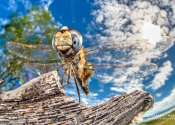Global study shows a third more insects come out after dark
A groundbreaking study, led by Dr. Mark Wong of The University of Western Australia, has provided the first global picture of insect activity patterns across the fundamental day–night cycle.









